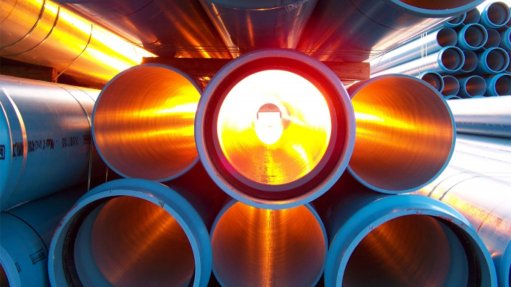
SHINING LIGHT Sappma continues to shine a light on the need for quality products and materials to its members
As part of its continuous education process, Southern African Plastic Pipe Manufacturers Association (Sappma) continues to enlighten design engineers, contractors and all users of plastic pipe of the critical importance of getting the highest quality of polymers in the products they specify or procure.
“The controlling product standards, national and international, of high-density polyethylene and polyvinyl chloride pipes are clear about the importance of the quality of polymers,” says Sappma CEO Jan Venter.
He stresses that apart from the stringent material specifications, most standards prohibit the use of recycled materials, other than the small percent created in the same factory.
Sappma is very focused on this important aspect and has implemented various steps to monitor its members.
“Sappma maintains close ties with accredited certification authorities and test labs, in order to jointly preserve and promote plastic piping systems,” he adds.
Venter points out the raw material or polymer used to produce plastic pipe has continually been improved ever since it was first introduced about 70 years ago.
Further, modern polymers are highly sophisticated materials, capable of operating lives in excess of 100 years, if processed correctly.
This is one of many reasons why plastic pipe has become dominant in the conveyance of fluids globally.
“Because the cost of polymer can constitute more than 75% of the cost of the finished pipe, it is clearly a target for unscrupulous operators, trying to reduce cost and increase profit,” he stresses.
Sappma also insists its members must ensure its tender documents and contracts are perfectly clear on the fact that recycled material is not allowed at all.
“It is of utmost importance that you ensure you have a knowledgeable individual undertaking regular inspections of factories or manufacturers,” adds Venter.
He attributes the lack of continuous standards upkeep to the fact that pipelines are mostly hidden from view and therefore there is a tendency to forget about it.
“That is, until there is a failure upstream and you end up without water at your home,” he says, adding that similar scenarios can be envisaged in every possible industry.
No country and civilisation can exist without the conveyance of fluids under controlled conditions, including instances such as potable water, wastewater, fuel, chemicals, slurries, gas, and many more.